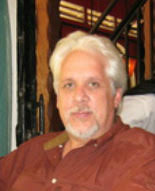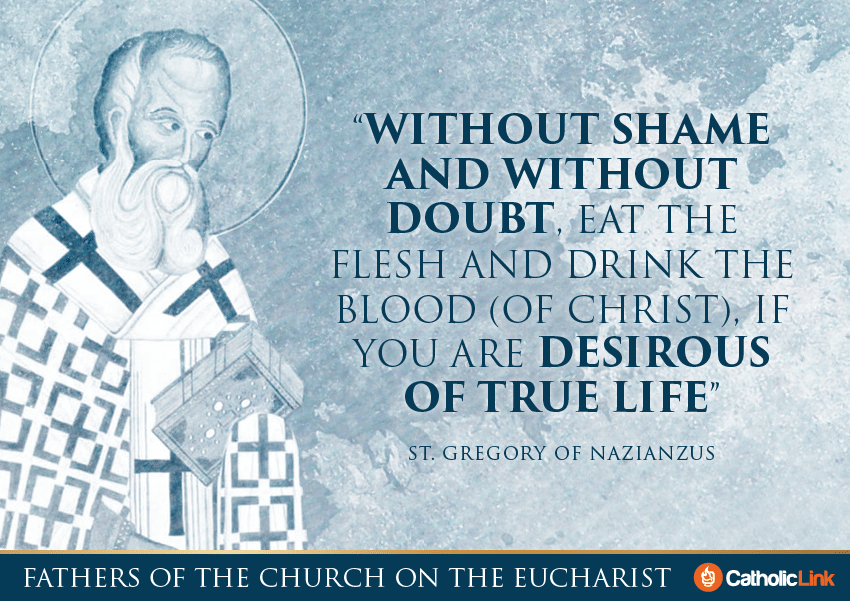
-by Ken Hensley
What Jesus Says and Does
So what am I talking about?
Well, so far Jesus has revealed himself to be the bread of life sent down from the Father in heaven. Those who “come” to him and “believe” in him will never hunger or thirst but will have eternal life, because Jesus will raise them up on the last day.
Beginning around verse 48, however, Jesus begins to use language he hasn’t to this point. He identifies the living bread with his “flesh” and says that one must “eat” this bread to live forever.
I am the living bread which came down from heaven; if anyone eats of this bread, he will live forever; and the bread which I will give for the life of the world is my flesh (vs. 51).
Now, those listening pick up on this shift in expression and immediately begin to dispute among themselves: “How can this man give us his flesh to eat?” (vs. 52).
And what’s our Lord’s response? Does he explain that what he means by this is that they must “come to him” and “believe in him”? No. Instead, Jesus intensifies his language. He begins to insist—in the most literalistic and graphic of terms—that his listeners must “eat his flesh” and “drink his blood” if they would have life.
So Jesus said to them, “Truly, truly, I say to you, unless you eat the flesh of the Son of man and drink his blood, you have no life in you; he who eats my flesh and drinks my blood has eternal life, and I will raise him up at the last day. For my flesh is food indeed, and my blood is drink indeed. He who eats my flesh and drinks my blood abides in me, and I in him . . . He who eats me will live because of me . . . He who eats this bread will live for ever” (vs. 53-58).
Jesus even switches from the more usual Greek verb for “eating” to use a word that means “to chew” or “to gnaw.” He repeats this particular verb four times in verses 54 through 58.
The repetition of this idea that his followers must eat, chew, gnaw upon his flesh and drink his blood is striking. It turns that not only are the Jews in general offended and scandalized, so are his disciples. It sounds to them as though Jesus is commanding some form of cannibalism and the exact reverse of the Mosaic laws forbidding the eating of flesh with the blood.
“Many of his disciples when they heard it, said, ‘This is a hard saying; who can listen to it?’” (vs. 60). “After this,” we read, “many of his disciples drew back and no longer went about with him” (vs. 66).
And what does Jesus do? Again, does he explain that he has only been speaking “figuratively”? No. He lets them leave.
He even asks the twelve, “Will you also go away?” To which Peter famously responds, “Lord, to whom shall we go? You have the words of eternal life; and we have believed, and have come to know, that you are the Holy One of God” (vs. 67-69).
I had to admit it: This does not make sense—if all that Jesus meant was that his disciples must “come” to him and “believe” in him.
After all, Jesus’ disciples had already “come” to him and “believed” in him. And yet he allows “many” of them to draw back and “no longer” walk with him. He lets them go. In other words, this was the end of the road for a good number of his disciples.
Even the twelve, those who would become his Apostles, are on the verge of leaving, and it appears as though Jesus would have let them go as well!
It appears as though Jesus would have let everyone go! And all he had to do was say, “Hey, I’m only speaking figuratively”?
Didn’t make sense. Whatever Jesus is saying here, he must be saying something more than that to receive eternal life we need to come to him and believe in him. He must be saying something more than this.
Baptists, Presbyterians and other Evangelicals all say that the figurative interpretation explains the passage.
Catholics say that in John chapter 6 Jesus is pointing forward to when, after suffering on the cross and ascending to heaven, he will give his body and blood as supernatural food and drink in the Eucharist; that this passage is pointing forward to the greatest miraculous meal of all, the feeding of the multitudes par excellence.
What other options are there? Assuming Jesus wasn’t teaching cannibalism, what options are there beyond his words being purely figurative and them indicating some means by which his disciples will have his glorified flesh and blood to eat and drink, some version of the Real Presence of Christ in the Eucharist?
At this point, there were several lines of thought converging in my head and moving me in direction of the Real Presence.”
Love,
Matthew

